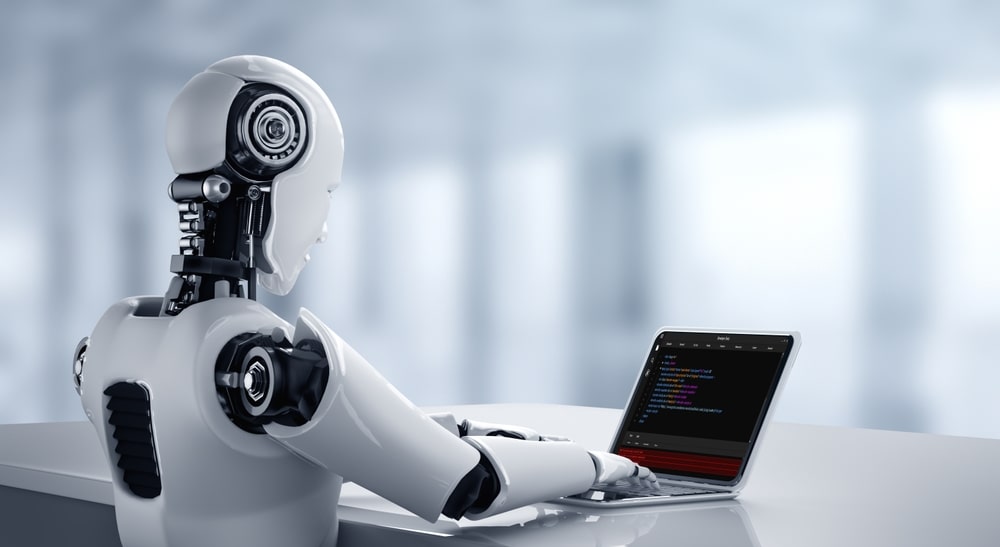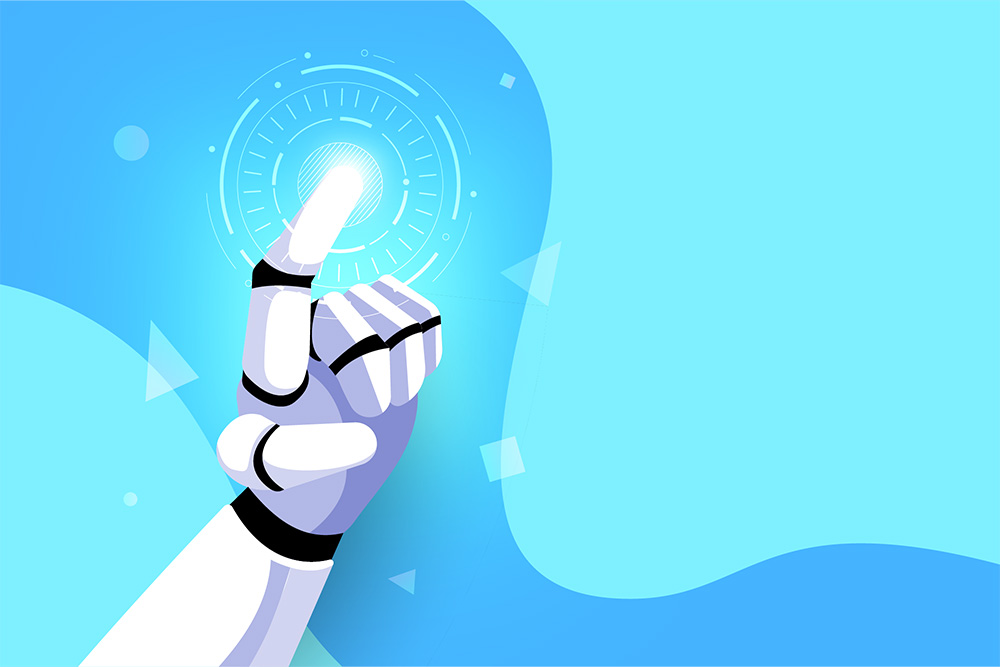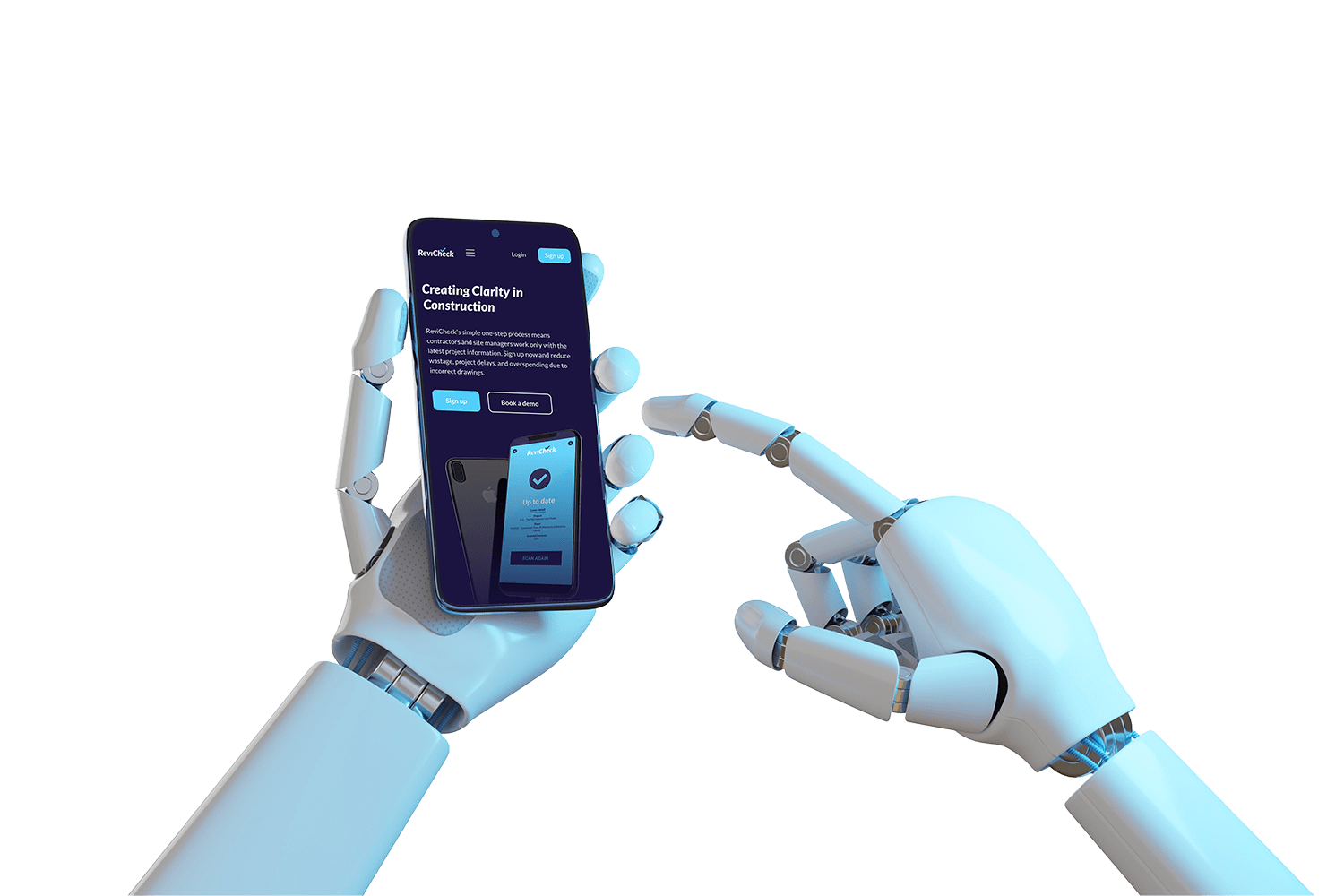AI website builders have emerged as powerful tools that simplify and streamline the process of creating websites, making it accessible to individuals and businesses with varying levels of technical expertise. These innovative platforms leverage artificial intelligence to automate many aspects of web development, enabling users to design and launch professional-looking websites with minimal effort.
What is an AI website builder?
Unlike traditional methods of web development that often require coding proficiency and technical expertise, AI website builders are engineered to be user-friendly, enabling individuals with various skill levels to build and customise websites without the need for extensive programming knowledge.
At its core, an AI website builder employs a range of algorithms and automated processes to simplify the website development process. These platforms typically feature intuitive interfaces, allowing users to design and structure their websites using drag-and-drop functionalities. This eliminates the complexity associated with manual coding and accelerates the creation of visually appealing and functional websites.

In addition, the learning capability of AI website builders sets them apart as dynamic and evolving tools. As users interact with the platform and make adjustments to their websites, the AI algorithms continually learn and adapt. This iterative learning process allows the builder to improve its recommendations over time, staying abreast of design trends and user preferences.
Key Benefits of AI Website Builders
- User-Friendly Interface: AI website builders are known for their intuitive and easy-to-use interfaces. These platforms typically feature drag-and-drop functionalities, allowing people to add, arrange, and customise website elements without writing a single line of code. This user-friendly approach democratises web development, enabling individuals and small businesses to create their online presence without the need for extensive technical knowledge.
- Templates and Design Suggestions: AI website builders come equipped with a wide range of professionally designed templates catering to various industries and purposes. Users can choose a template that aligns with their vision and customise it according to their preferences. The AI algorithms embedded in these platforms also analyse user behaviour to provide automated design suggestions, ensuring a personalised and visually appealing website.
- Responsive Design: With the increasing prevalence of mobile devices, having a responsive website is crucial. AI website builders automatically optimise websites for different screen sizes, ensuring a consistent and user-friendly experience across desktops, tablets, and smartphones. This responsiveness not only improves user satisfaction but also contributes to better search engine rankings.
- Ecommerce Capabilities: Many AI website builders offer seamless integration of ecommerce functionalities. Business owners can easily set up online stores, create product pages, manage inventory, and facilitate secure payment transactions. The AI may also provide insights into optimising the online shopping experience, making it an attractive solution for businesses looking to establish an online retail presence.
- Automated Security Measures: Security is a paramount concern for any website. AI website builders often include automated security measures to protect websites from potential threats. This may include regular security scans, SSL certification, and safeguards against common cyber threats. By embedding these security features into the platform, business owners can build and maintain secure online presences without in-depth knowledge of cybersecurity.
- Continuous Learning and Optimisation: AI website builders are designed to continuously learn and adapt based on user interactions. As users engage with the platform and make adjustments to their websites, the AI algorithms refine their recommendations over time. This continuous learning process ensures that the builder evolves, staying updated with the latest design trends and technological advancements.
- Cost-Effective Solution: Compared to traditional web development methods that may involve hiring web developers and designers, AI website builders offer a cost-effective solution. Business owners can save on development costs and ongoing maintenance expenses, making these platforms particularly attractive for small businesses, start-ups, and individuals with limited budgets.

Examples of AI Website Builders
Many AI website builders have emerged in the industry, showcasing the capabilities of artificial intelligence in simplifying the web development process. These platforms cater to people with varying levels of technical expertise, offering intuitive interfaces and automated features. Here are a few examples of AI website builders:
Wix ADI
Wix, a popular website builder, features Wix ADI (Artificial Design Intelligence), an advanced tool that automates the website creation process. Wix ADI gathers information about the user’s preferences, industry, and design choices to generate a personalised website. Users can then further customise the design, layout, and content.

Zyro
Zyro is a website builder that integrates AI for various purposes, including logo creation, content generation, and ecommerce functionality. Zyro’s AI-driven tools assist users in designing logos based on their preferences and automatically generating content that aligns with their chosen style and industry.
Squarespace
Squarespace incorporates AI-driven features to enhance website creation. Its layout engine uses artificial intelligence to automatically arrange content elements in a visually appealing way. Squarespace also provides personalised suggestions for design elements based on user preferences.
Jimdo
Jimdo is a user-friendly website builder that incorporates AI-driven elements to simplify the design process. The platform’s AI analyses the content users provide and generates a personalised website based on their preferences. It also offers intuitive design features and layout suggestions, making it accessible for users with limited technical skills.
Zoho Sites
Zoho Sites is an AI-powered website builder that caters to businesses and professionals. The platform uses AI to assist in content creation, suggesting suitable layouts and designs based on the user’s industry and preferences. Zoho Sites also integrates seamlessly with other Zoho applications, providing a comprehensive suite for business needs.
Each platform utilises artificial intelligence in different ways, from personalised design suggestions to chatbot-driven interfaces and advanced SEO optimisation.

Disadvantages of AI Website Builders
While AI website builders offer a range of benefits in terms of ease of use, accessibility, and quick website development, they also come with certain disadvantages that business owners should consider. It’s important to weigh the pros and cons before deciding if an AI website builder is the right choice for a particular project. Here are some of the disadvantages associated with AI website builders:
- Limited Customisation: One of the main drawbacks of AI website builders is the potential limitation in customisation. While these platforms provide a variety of templates and customisation options, businesses may find it challenging to achieve highly unique and specialised designs. For businesses or individuals with specific branding requirements, the constraints of an AI website builder could be a significant drawback.
- Dependency on Templates: AI website builders heavily rely on pre-designed templates to simplify the website creation process. While templates offer a quick start, they may lead to a lack of originality and uniqueness. Websites created using popular templates might have a generic appearance, making it harder for businesses to stand out in a competitive online environment.
- Learning Curve for Advanced Features: While AI website builders are designed to be user-friendly, mastering advanced features may still require a learning curve. Businesses aiming for more sophisticated functionalities or intricate design elements may find it challenging to navigate the complexities of certain features, potentially limiting the depth of their website customisation.
- Performance Concerns: Some users have reported concerns about the performance of websites built using AI website builders. While these platforms aim to generate clean and efficient code, the automated processes may result in less optimised code compared to manually crafted code by experienced developers. This can impact factors such as page loading speed and overall site performance.
- Subscription Costs: While many AI website builders offer a free or trial version, access to advanced features often comes with a subscription cost. Over time, these costs can accumulate, making AI website builders less cost-effective for long-term projects compared to traditional web development methods.
- SEO Limitations: Search Engine Optimisation (SEO) is crucial for a website’s visibility and ranking on search engines. AI website builders may have limitations in terms of SEO customisation. Users may find it challenging to implement advanced SEO strategies or make granular changes to optimise their websites for specific search engine algorithms.
- Limited Integration with Third-Party Tools: Users looking to integrate their websites with specific third-party tools or services may encounter limitations with AI website builders. These platforms may not always provide seamless integration options for all desired functionalities, restricting the ability to extend the website’s capabilities.
- Ownership and Portability Concerns: Some AI website builders may impose restrictions on website ownership and portability. Users might face challenges if they decide to migrate their website to a different platform or hosting provider, potentially leading to data lock-in issues.

So, can you build a website with just an AI website builder?
While it is possible to create a basic website with an AI website builder, we don’t recommend building your business’ website with just an AI website builder. As discussed, there are disadvantages associated with these platforms, regarding the level of customisation, ownership and SEO limitations, all areas that are vital to the success of your website.
Your website is your home for your business’ online presence and so, you need it to perform to the best standard possible, something that AI website builders can’t provide on their own. AI website builders do offer convenience and accessibility, but they are not suitable for many website projects, especially those with specific customisation, scalability, or branding requirements.
By working with us for your website’s design and development, your business can benefit from a more tailored and sustainable solution without restrictions.
If you’re looking to create a website for your business, we’d love to chat and you can contact us here.




